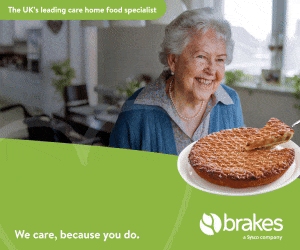Opinion: Food strategy white paper will mean changes for care catering
The government is due to respond to the National Food Strategy, and Joe Barson, interim head of research and policy at Vegetarian for Life, believes it may affect the care catering sector significantly.

Joe Barson, interim head of research and policy at charity Vegetarian for Life, believes the government's response to the National Food Strategy could have a significant impact on the care catering sector.
The government is due to respond to the National Food Strategy that was released last year. Its white paper will outline how the government’s planned response to concerns raised about the sustainability of the food system.
The strategy itself drew together detailed research into the food system. It noted that action needs to be taken regarding the production and consumption of food, especially to reduce the environmental impact of the food system.
In light of the research, the strategy proposed a "long-term shift" in food culture, highlighting the need for meat reduction in diets. Less land should be committed to meat production, it said, allowing more sustainable food types to be produced.
It is unclear how many of the recommendations the government will take forward and how quickly. Yet the direction of travel is clear. In order to create a sustainable food system, people will need to cut down on meat.
This could have a significant impact on the food procured in the care sector. As changes are made to the food system, animal-based foods may become less available and there may be increased pressure to use more plant-based products.
Vegetarian for Life (VfL), the charity set up to support vegetarians and vegans in later life, works closely with the care sector to promote plant-based diets. Many care homes throughout the UK have taken part in training and signed up to its UK List, agreeing to cater well and ethically for their vegetarian and vegan residents.
Some of those receiving care already follow meat-free diets for ethical reasons. Yet as changes are recommended in the food sector, it will become necessary for care homes to adapt further.
Care caterers will not only need knowledge of specific diets. They will also need to consider how to provide nutritious food options using more diverse foodstuffs.
VfL believes that this provides a real opportunity for the sector. As the National Food Strategy noted, changes in diet can lead to large improvements in health. A proactive engagement with nutrition could really benefit those receiving care.
Further, through VfL’s work, we recognise the opportunity that positive engagements around diet can have. Including residents in menu planning and trying new recipes can be a really rewarding experience.
However, we note that not all parts of the care sector are equipped to deal with the changes. An Inquiry Report that VfL completed last year noted many examples where those following meat-free diets were unable to practice their beliefs in care. It demonstrated that some in the care industry lacked knowledge of the specific diets that some residents follow.
Changes in the food system will certainly be challenging. However, we believe that a proactive and supportive approach can allow the sector to benefit from opportunities offered by these challenges.








